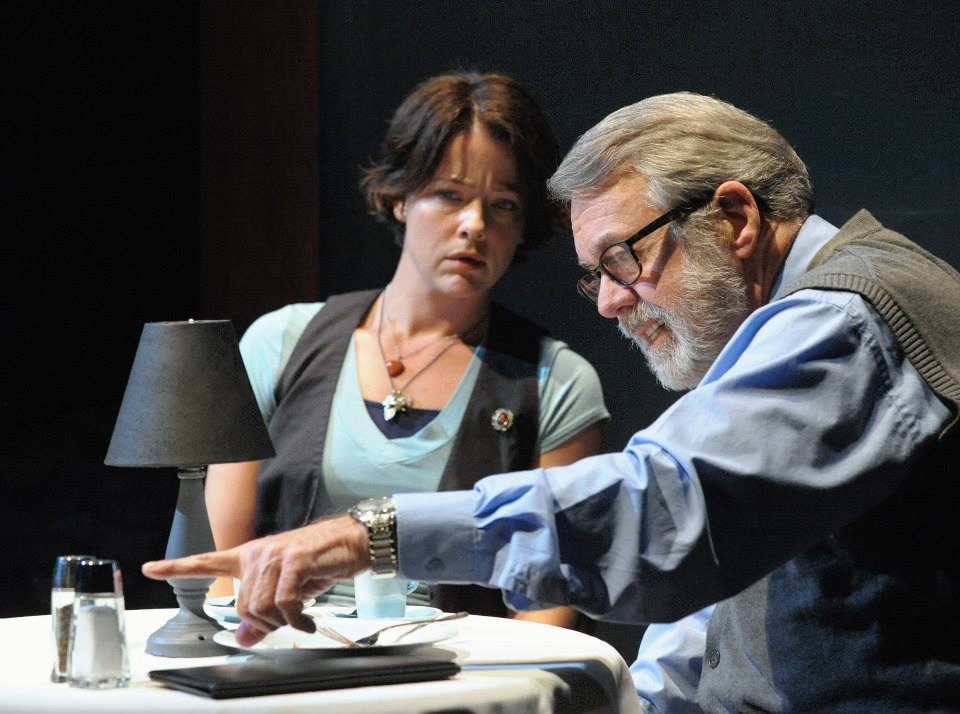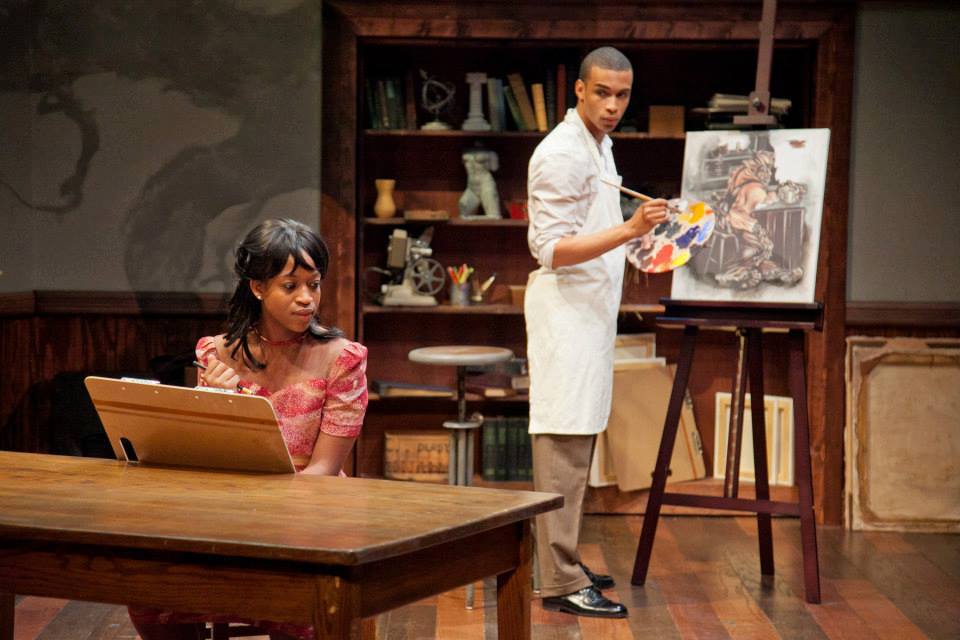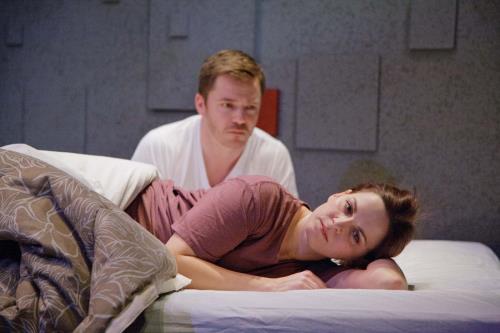|
JACQUELINE LAWTON: How long have you lived and worked as a stage manager in DC? What brought you here? Why have you stayed?
KAREN CURRIE: That’s a trick question for me because I was here for graduate school at American in the mid-1990s and then went to New York City for a while. I’ve been back in DC since 2005 and have been working as a stage manager that whole time. So I initially came for school. When I left I always knew I’d come back to DC eventually. It’s always felt like home to me with its great balance of big city/suburban life. JL: What excites you most about being a stage manager? What do you feel your greatest challenges are? KC: I love the process of watching something original come together – that moment when everything clicks and a piece becomes more than the sum of its parts. It’s magic and I’m so lucky to get to play a part in that. On the flip side the challenge are how to keep morale up when the magic isn’t happening. Or isn’t happening quite yet. JL: What traits do you feel a successful Stage Manager should have to support the health and growth of a production? KC: There are people who will disagree with me, but I feel like a successful stage manager is one who not only keeps up with the technical and logistical aspects of the job, but also can do everything possible to make everyone in the room supportive and comfortable enough to be at their best (including themselves!). JL: Does your work as a Stage Manager pay the bills? If not, what other work do you do and how do you find a balance? KC: Well, certainly not all of them. I’m very lucky in the part time office job that I have at a property management company in town. They are super supportive of my stage management work and let me come and go as needed to be available for productions. I also proof audio books occasionally and other similar computer based things that I can do from home at any time. The balance is the trickiest part of the whole thing. I am fiercely protective of my Mondays as a day off. When a production schedule doesn’t allow for that, I do everything I can to have at least one complete day off each week. A girl’s gotta have some time to do laundry. JL: Looking at your body of work as a stage manager in this community, how conscious are you of selecting plays by women or people of color when deciding your season? KC: I make choices based on a lot of different criteria: the people involved, the script, the theater company, the other people on the stage management staff. And while I like new challenges, it’s also nice to have a show or two that are like old home week where you get to work with people that you know and trust. I’m very lucky to have that family at Theater J, partly because they do make a strong effort to support women’s voices and voices of people of color. JL: How do you feel the DC theatre community has addressed the issues of race and gender parity? How has this particular issue impacted you and your ability to work? KC: I think that there are some companies that are working diligently to include productions by playwrights, directors, designers, stage managers, and actors of all types in their seasons - which I celebrate. And some that are not - which is disappointing. Could there be more? Certainly. But I also think that there are some companies whose missions better fit those opportunities than others. The ones whose mission makes this more difficult to achieve don't appear to be making many strides, but there's also an awful lot else that goes into picking a season. I have tremendous respect for those who do that as I know it is decisions that I wouldn't want to have to make every year! As for my ability to work, I have run across those times when the attitude is "a girl can't do that" or "we'll have to get a guy to do that" but I'm pretty aggressive at counteracting that notion. JL: DC audiences are ... KC: Engaged, thoughtful, loyal, excited, and oh so smart. JL: DC actors, designers and directors are .. KC: Inspiring, challenging, supportive, creative, and the best group of artists someone could ask to be around on a regular basis. I am amazed every day that I get to be in a rehearsal room or a dark theater with so many talented people. It’s cheesy to say, but I really do feel like I’m living the dream. JL: DC critics are ... KC: Are a part of the overal process and can certainly impact the work. I read reviews, because I feel like I need to know if an actor is responding to something that has been written. Part of my job is to maintain the integrity of the director's vision and intent. JL: What advice do you have for an up and coming DC based stage managers? KC: Go see everything you can. Get to know the people in town. If you are new to stage management or to town – contact a company you want to work with. Ask to shadow someone for a night. So much of the work that I have now is based on connections I’ve made from one show to another. An actor here introduces me to a director there who introduces me to a production manager there. And get to know other stage managers in town. We’re ALL looking for really good assistants and are very supportive of each other. I can’t tell you the number of times that I get an email or a call from someone who says “Do you know someone who can do A or B?” JL: What's next for you as a stage manager? Where can we keep up with your work? KC: I’m currently starting rehearsals for ORPHIE AND THE BOOK OF HEROES at the Kennedy Center Youth and Family Programs and in the Spring I'll be working on Freud's Last Session at Theater J.
0 Comments
Your comment will be posted after it is approved.
Leave a Reply. |
My BlogI'm a playwright, dramaturg, and teaching artist. It is here where you'll find my queries and musings on life, theater and the world. My posts advocate for diversity, inclusion, and equity in the American Theatre and updates on my own work. Please enjoy!
Categories
All
Archives
June 2020
Reading List
|



